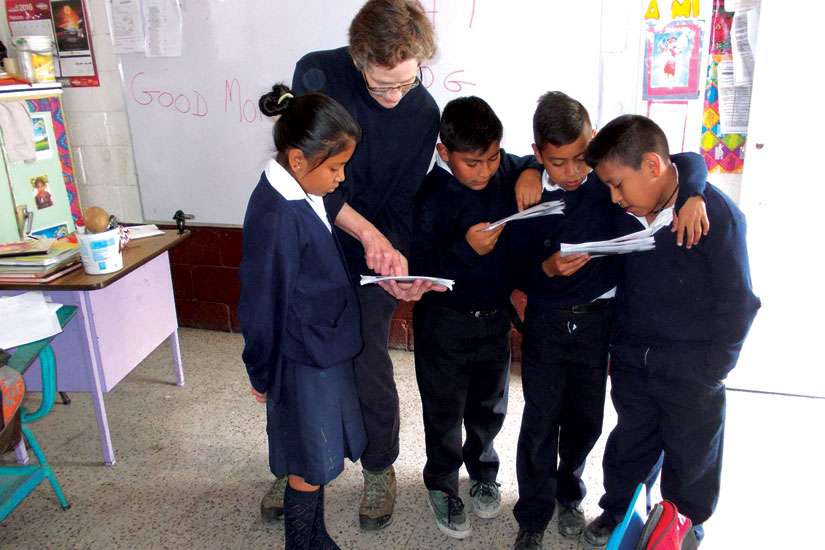This Canadian NGO had sent them to the town of Chichicastenango in the Mayan highlands for four weeks. Their mission: to help develop a computerized administration system for a school run by the Dominican Sisters of the Annunciation of the Blessed Virgin. A new culture and their limited Spanish-language skills were the least of the Rehaks’ problems when within 24 hours Daniel became ill with serious gastrointestinal problems that plagued him even after they returned to Toronto.
It was the support from the Dominican sisters that first gave Patricia hope they would survive this ordeal.
“Within 24 to 48 hours, we were starting to build a relationship with this community of people we never met before, so it was actually harder for us to come back to Canada than it was to be down there,” she said. “They helped us, and we helped them.”
That was the beginning of the Rehaks’ relationship with the Dominicans and three of the school communities they serve.
The Canadian Executive Service Organization never sent the Rehaks back to South America. Yet 12 years later, the computer school admin system they developed is still being used in Chichicastenango, and the Rehaks have used their vacation time to visit and volunteer in Guatemala numerous times.
“Our eyes opened up and we saw things we’d never seen in Canada. We realized some of the education needs and that we might be able to help meet them by continuing to build relationships with the school and working on various projects,” said Patricia.
In January 2016, they created Together Education Works, a registered charity that supports Centro Educativo Francisco Coll in Guatemala City and two other schools run by the Dominican sisters. The three schools serve about 2,000 students.
“We’ve seen that the Dominican sisters who run the school are amazing people,” said Daniel. “They are able to do a lot with very little, and they always have a positive happy attitude no matter how dire the situation is. And then we try and help them find out what their problems are and what the possibilities are to fix those problems.”
Based on the schools’ needs, the Rehaks have supported breakfast programs at two of the schools to ensure the children aren’t hungry and are able to concentrate on their education. The Rehaks have also been requested to support a backpack program for students whose parents aren’t able to buy school supplies. The program packs a bag full of workbooks, pens, pencils and other necessities.
Daniel’s hobby is studying water purification and distribution systems. So in Chichicastenango, where the children at the school suffer from gastrointestinal problems, he brought his portable microbiology kit and completed a basic analysis of the school’s water distribution system. He detected high levels of bacterial contamination. With funding from another NGO, the contaminated sections of the system were replaced and a ceramic water purification was installed. Gastrointestinal problems were greatly reduced.
Noting that math, computer and English language skills add a competitive edge in the Guatemalan job market, the Rehaks created an English curriculum and trained teachers on how to implement it.
“We try and transition everything, so it just doesn’t depend on us,” said Daniel.
Future projects include building a library and assisting with the payment of teacher’s salaries.
It is Daniel and Patricia’s hope that supporting the children in their education will give them a better chance at escaping poverty.
For more information on the program, e-mail Daniel and Patricia Rehak at DPRGUA01@yahoo.com.
(Remy is a freelance writer in Toronto.)


